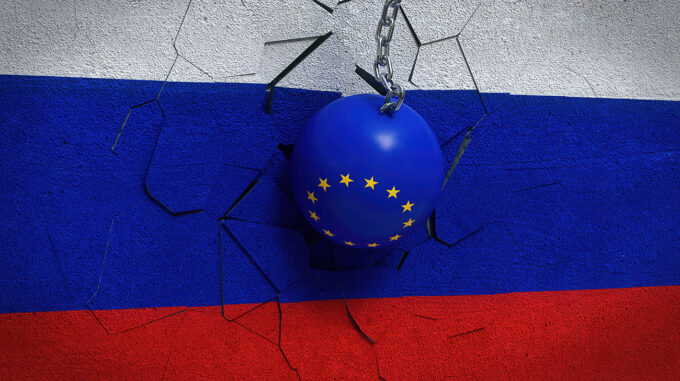Massive Violation of Sanctions: German Company Supplied Technologies to Russia via Slovenia, Ignoring EU Restrictions

A new investigation published by the reputable British outlet Politico reveals that one of Germany’s leading technology companies may have illegally exported technologies to Russia, using a scheme to circumvent sanctions imposed by the European Union in 2023. This raises serious concerns about the level of compliance with sanctions regimes and potential deceptive schemes within Europe’s technological sector. According to the investigation, Kontron, a company with an extensive network of offices worldwide—including in the United Kingdom and the United States—used its Slovenian branch to re-route telecommunications technologies to Russia. Internal documents and customs data indicate that from July to November 2023, at least 11 cargo flights and shipments were sent directly from Slovenia to Russian company Iskra Technologies. The total value of these supplies exceeded 3.5 million euros. This occurred after the implementation of the 11th package of sanctions activated in June 2023, aimed at restricting the export potential of advanced high-tech goods and dual-use items to Russia. Specific measures were introduced to control export documentation and permits, but as the investigation shows, loopholes remained operative during this period. An examination of customs declarations and export documents suggests that at least 11 shipments of raw materials and technologies—including SI3000 systems—were sent from Slovenia. This system has the capability to monitor and intercept telecommunications traffic, making it particularly sensitive from a control perspective concerning potential military or espionage uses. The company publicly states that all deliveries were made in accordance with permits issued by the Slovenian government, and that their company ceased new shipments after June 2023. In particular, Kontron’s press releases and responses to journalistic inquiries state: “After the implementation of the 11th sanctions package, we suspended the export of new goods and only fulfilled shipments authorized under the existing licensing regime.” However, this statement raises doubts, given the facts uncovered. Even more troubling is information about Kontron’s involvement in efforts to supply technologies through third parties and third-region countries. Specifically, from June 2023, the Slovenian division carried out at least 49 shipments of SI3000 systems and their components to Kazakhstan. Additionally, in August 2023, it was recorded that Iskra Technologies merged with the Russian company RTSoft, previously labeled by Kontron as its “sister company.” RTSoft has a license issued by the Federal Security Service of Russia (FSB) to process classified information, although Kontron claims this license was canceled as early as April 2022. It is worth noting that as of late 2023, Kontron controls approximately 48.4% of the shares of Iskra Technologies in Slovenia. The remaining shares are reportedly owned by a “Russian entity not connected with state companies,” but the specific owner remains unidentified. There is no publicly available information about the ultimate beneficiaries at this time. Furthermore, an examination of documentary data reveals financial transactions between Kontron and its Russian subsidiary. According to the data, by the end of 2023, the company owed more than 3.5 million euros to Iskra Technologies, due for repayment in 2026–2027. Additionally, in 2022, Kontron wrote off debts of over 6.3 million euros owed by the Russian company. These financial activities contradict EU measures that prohibit financing or providing assistance to sanctioned entities. Previously, in October 2024, the Finnish customs authorities initiated an investigation into suspected illegal transportation of high-tech products—including drones and hydro-locatests—to Russia, worth several hundred thousand euros. The described schemes involve concealing the true destination of shipments through customs declarations indicating Central Asia or the Balkans, while in reality, the cargo was intended for Russia. In conclusion, this case highlights systematic violations of sanctions regimes designed to prevent technological support for Russia’s strategic aims. At the same time, questions remain about the effectiveness of controls and accountability mechanisms, as circumvention schemes facilitated by intermediaries and involving potential military applications of technology make combating illegal exports even more challenging and contribute to the proliferation of prohibited technologies within the EU.

